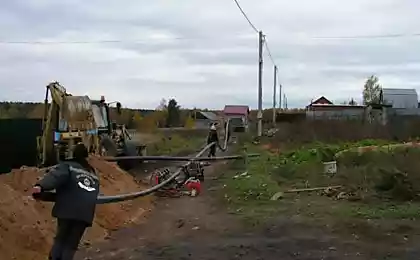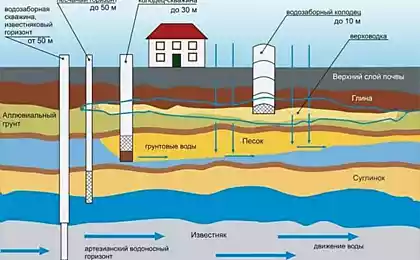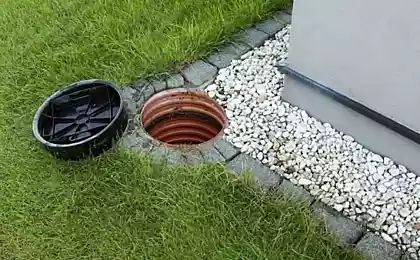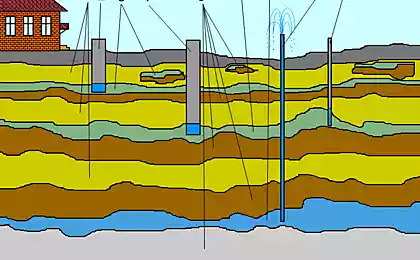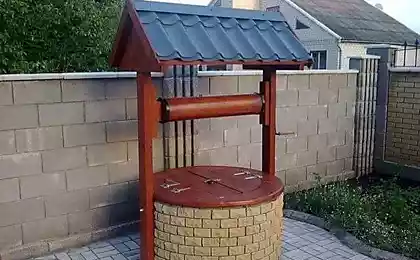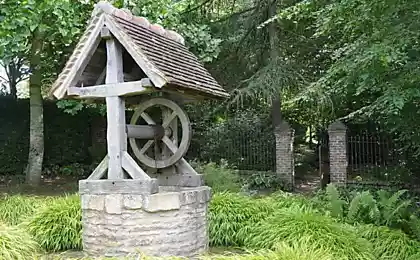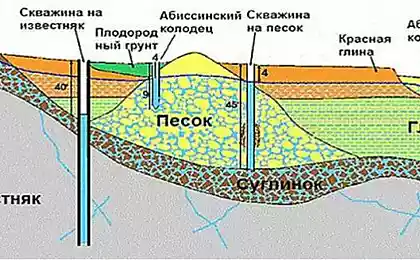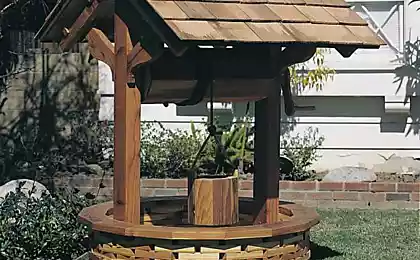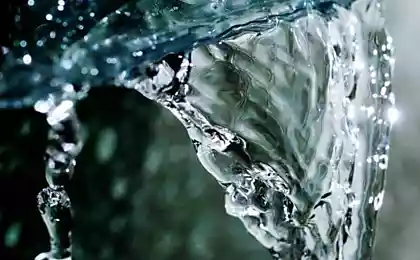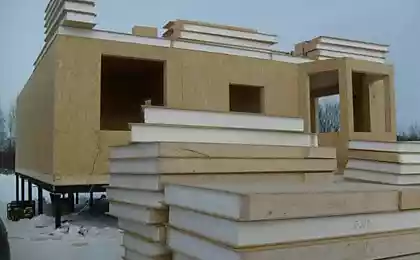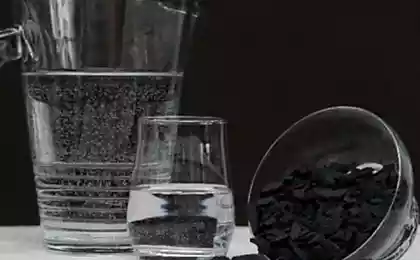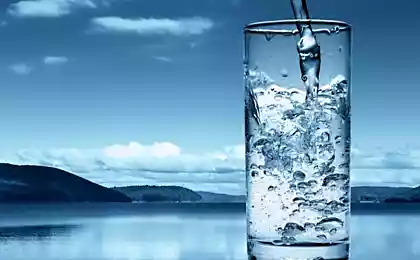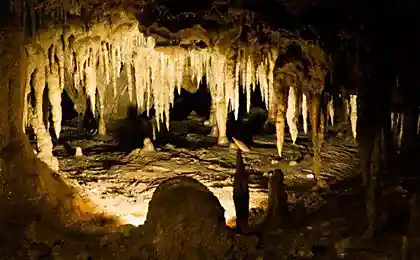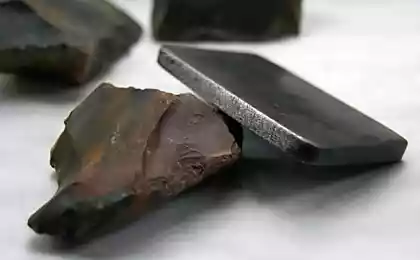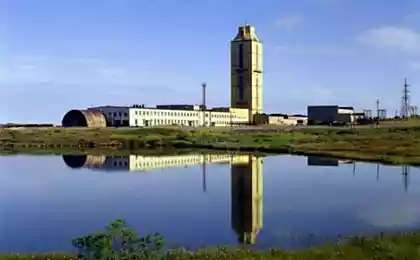657
The well or borehole which is better for home
Not all suburban and gardening community can boast of a Central water supply. Some gardeners despite the fact that their plots are equipped with water, make a choice in favor of the well or wells. What are the reasons for their preferences?
Which is better, well or borehole on a country siteit Happens that the well or borehole is the only source of water supply in the suburban area. Without water will not work to cook, to water plants, to wash in the bath. In this case the reason is obvious.
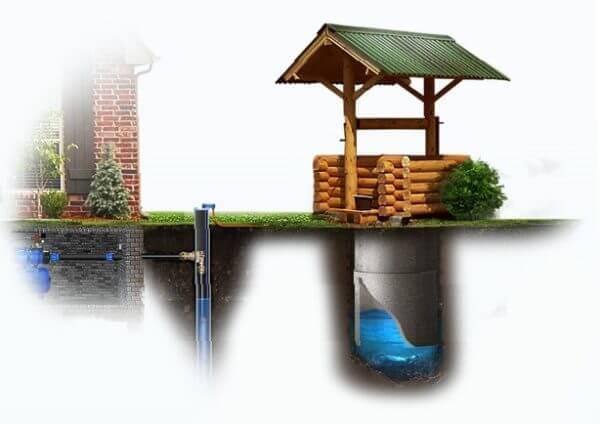
But sometimes gardeners dig wells or wells, even in the presence of the Central water supply on the site. The reason for this is the inadequate quality of water from the water system. This could also be due to an inadequate amount of water, very often in summer its flow limit at the time. A large number of people using water, also negatively affects the level of the water pressure.
It happens that there are failures in the water supply due to faults of the Central water supply system. And then have to get water from their own wells or wells.
The fact that the area needed a source of water supply no doubt.
It remains only to determine what it is: a borehole or well? With this problem sooner or later faced by most gardeners.
Define the nature of the soilBefore you start building your water source, determine the nature of the soil and to know the depth of the lay of the aquifer. Some useful information can be obtained from neighbors who already have experience of such construction. But specialist services will be more effective.
The various species occur in the earth's crust, forming the strata (layers of clay, sand, humus). In the process of building mine, you can detect the layer that has the ability to give water. This suggests that it is waterproof horizon impermeable to water. Usually, this clay layer, it is called aquifer.
In different parts of the aquifer has the degree of smoothness and uniformity, so there are different aquifers, different volumes. The number of layers and the depth to which they occur depend on the nature of the soil. The purity of the water influenced the purity of the soil and the depth at which the water.
Classification of groundwaterthe following types of water resources that lies beneath the ground:
In winter or during drought, this layer may disappear. If the Bank is at a small distance from the surface of the earth, this place can be formed marshy areas. This water cannot be used therefore in the construction of the well, it must be isolated. Perched lies at a depth of not more than 4 meters.
Water located below the level of the perched water on the near horizon is called groundwater. This free-flow of water in the mine pit are located at the same depth, while staying in the breed. When entering the ground, groundwaters constitute the keys or springs. The greatest depth to which ground water table is 10 meters.
Pretty deep aquifer layers overlie the artesian water resources. They are located under the overpressure of the pressure between the two layers, no wonder they nicknamed pressure. They lie at a depth of over 40 meters.
The construction of the mine pitFor the construction of the well on a country site it is necessary to dig a mine. This can be done either manually or with special machines. Decisive factors when choosing a method is the availability of work resources and Finance.
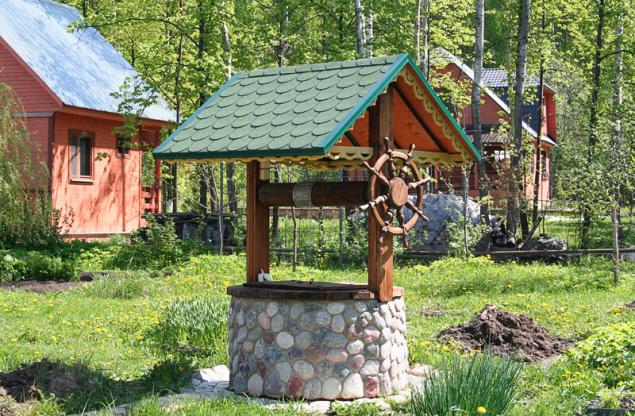
The advantages of a well before the well:
For the construction of one well goes from 5 to 10 rings. The installation produces during the day.
The construction of the Abyssinian (precast) manholeSuch an unusual name as well gave his country of origin – Ethiopia (Abyssinia). It was there in the 19th century invented it.
The Abyssinian type of well consists of a pipe diameter to an inch. Tube length is possible up to 15 meters.
The top tube is equipped with a pump, and the bottom – filter-grid with small cells. The life of the well — 10 years or more. The volume of water that comes out of the well for one hour is equal to about 1 cubic meter.
Pros:
Cons:
The construction of the well
Well construction is done by gangs specializing in data services.
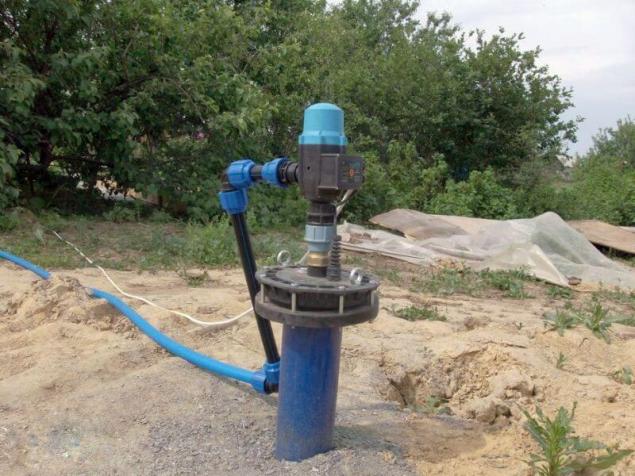
Wells differentWells according to the method of drilling are divided into:
The advantages of the wells in the sand are:
The advantages of artesian wells:
What pipe is best used for well waterFor construction of wells used seamless seamless steel pipe. Steel shall not be galvanized, because zinc has a detrimental effect on human health.
The perfect solution is a tube of plastic mounted inside of a casing of steel. This can lead to increased cost of installation.
Time chemical analysisChemical analysis of water is advantageously carried out approximately in a month after starting skvazhinnoj system. From the obtained results depends on the choice of equipment.
When choosing a water supply source, it should be remembered that it needs to be as comfortable and easy to handle. published
Source: hozyindachi.ru/kolodec-ili-skvazhina-chto-luchshe-dlya-doma/
Which is better, well or borehole on a country siteit Happens that the well or borehole is the only source of water supply in the suburban area. Without water will not work to cook, to water plants, to wash in the bath. In this case the reason is obvious.

But sometimes gardeners dig wells or wells, even in the presence of the Central water supply on the site. The reason for this is the inadequate quality of water from the water system. This could also be due to an inadequate amount of water, very often in summer its flow limit at the time. A large number of people using water, also negatively affects the level of the water pressure.
It happens that there are failures in the water supply due to faults of the Central water supply system. And then have to get water from their own wells or wells.
The fact that the area needed a source of water supply no doubt.
It remains only to determine what it is: a borehole or well? With this problem sooner or later faced by most gardeners.
Define the nature of the soilBefore you start building your water source, determine the nature of the soil and to know the depth of the lay of the aquifer. Some useful information can be obtained from neighbors who already have experience of such construction. But specialist services will be more effective.
The various species occur in the earth's crust, forming the strata (layers of clay, sand, humus). In the process of building mine, you can detect the layer that has the ability to give water. This suggests that it is waterproof horizon impermeable to water. Usually, this clay layer, it is called aquifer.
In different parts of the aquifer has the degree of smoothness and uniformity, so there are different aquifers, different volumes. The number of layers and the depth to which they occur depend on the nature of the soil. The purity of the water influenced the purity of the soil and the depth at which the water.
Classification of groundwaterthe following types of water resources that lies beneath the ground:
- perched;
- ground water;
- type artesian water resources
In winter or during drought, this layer may disappear. If the Bank is at a small distance from the surface of the earth, this place can be formed marshy areas. This water cannot be used therefore in the construction of the well, it must be isolated. Perched lies at a depth of not more than 4 meters.
Water located below the level of the perched water on the near horizon is called groundwater. This free-flow of water in the mine pit are located at the same depth, while staying in the breed. When entering the ground, groundwaters constitute the keys or springs. The greatest depth to which ground water table is 10 meters.
Pretty deep aquifer layers overlie the artesian water resources. They are located under the overpressure of the pressure between the two layers, no wonder they nicknamed pressure. They lie at a depth of over 40 meters.
The construction of the mine pitFor the construction of the well on a country site it is necessary to dig a mine. This can be done either manually or with special machines. Decisive factors when choosing a method is the availability of work resources and Finance.

The advantages of a well before the well:
- requires lower financial costs in contrast to wells;
- well the ring is much wider, providing seamless service the well, cleaning and changing of the pump;
- even if the power supply is broken, the water can rise up through the pump.
- the wells have a smaller water reserve.
- the degree of purity of well water is much lower than in the well. This is especially noticeable in the spring and after rains.
For the construction of one well goes from 5 to 10 rings. The installation produces during the day.
The construction of the Abyssinian (precast) manholeSuch an unusual name as well gave his country of origin – Ethiopia (Abyssinia). It was there in the 19th century invented it.
The Abyssinian type of well consists of a pipe diameter to an inch. Tube length is possible up to 15 meters.
The top tube is equipped with a pump, and the bottom – filter-grid with small cells. The life of the well — 10 years or more. The volume of water that comes out of the well for one hour is equal to about 1 cubic meter.
Pros:
- to set design need not apply overall device;
- well pitch even in the basement or garage.
Cons:
- the construction of Abyssinian wells is possible only on soft and loose soils;
- due to the fact that raising water using vacuum pumps, the water level should not be at a depth greater than 8 meters.
The construction of the well
- The advantages of wells (tube wells) is that the water is much cleaner well. Wells contain a large stock.
Well construction is done by gangs specializing in data services.

Wells differentWells according to the method of drilling are divided into:
- filter, the drilling of which took place in sand;
- artesian wells drilled in limestone.
The advantages of the wells in the sand are:
- the procedure of drilling going on for about a day;
- does not require the use of bulky devices.
- • does not require registration, and registration of the license;
- • you may use cheap pumps;
- • a small amount of iron in the composition of the water.
- the formation of sludge;
- a small quantity of water;
- the high cost of cleaning wells;
The advantages of artesian wells:
- long life;
- not prone to silting;
- not susceptible to contamination by surface runoff;
- a large amount of water supplied.
- expensive;
- long licensing period;
- mandatory water tax;
- expensive tooling;
- the water may contain various hazardous to health impurities.
What pipe is best used for well waterFor construction of wells used seamless seamless steel pipe. Steel shall not be galvanized, because zinc has a detrimental effect on human health.
The perfect solution is a tube of plastic mounted inside of a casing of steel. This can lead to increased cost of installation.
Time chemical analysisChemical analysis of water is advantageously carried out approximately in a month after starting skvazhinnoj system. From the obtained results depends on the choice of equipment.
When choosing a water supply source, it should be remembered that it needs to be as comfortable and easy to handle. published
Source: hozyindachi.ru/kolodec-ili-skvazhina-chto-luchshe-dlya-doma/
